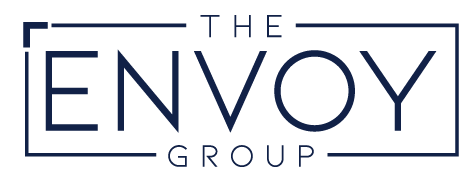What the Heck is ESG?
The newsletter for professionals cautiously approaching the discussion about climate, but pretty sure they should.
Issue Number : 8
As it turns out, my articles titled ‘What the heck is...’ has become thought of as a series by some readers. Thank you and let’s keep that going every month. This time, I’ll talk about ESG.
So, what is it?
First, ESG is not a thing unto itself, it’s an acronym that stands for environmental, social, and governance. The three words, ESG, are also not definitive things. The phrase ESG represents both a set of ideals and the use of reporting and measuring parameters – referred to in this context as ‘ESG frameworks’. Companies use an ESG framework to measure, quantify, and subsequently report their results in relation to goals set on one or all of these three topic areas.
It’s important to note that ESG is not a ‘rule’. The government, at least not at present, doesn’t require you as a person or company to use an ESG framework. ESG is also not operated by the government. In fact, some of these frameworks are for-profit companies that you pay as a service to provide you with a reporting standard. Wait – except that there is no standard – at least not one that everyone uses. Most companies, if they chose to use an ESG framework (or three) use more than one because the frameworks have somewhat unique mechanisms for calculating and measuring success. Common frameworks are the Global Reporting Initiative (GRI), Sustainability Accounting Standards Board (SASB), United Nations Global Compact (UNGC), and Task Force on Climate-related Financial Disclosures (TCFD) – there are many more but these are used by many large agriculture and food companies today. Learn more on these specific frameworks.
Do I need to pay attention to ESG?
That depends. Some organizations have to because their boards, investors, or other stakeholders and regulators require it as a way to demonstrate progress toward goals in one or more of the three areas ESG represents. For other companies, they want to pay attention to ESG, and using these frameworks are tools to begin evaluating their performance in one or more of these areas or to create a set of parameters to begin implementing changes. It’s important to recognize that many companies are already doing an abundance of ESG-related programs and simply not reporting it through one of these frameworks. That is fine!
So, what does it have to do with climate conversation?
Well, all three of these could relate to climate and climate goals, but let’s just do the obvious – environment. Experts in helping companies implement ESG goals counsel that an organization should start with sustainability. Secondly, when looking at ESG, the idea is not to ‘do ESG’, rather, it is to determine the set of sustainability aims and chose parameters to measure, report, evaluate, and continually improve them. That is ESG. So, in a sense, if you’re working in sustainability or already have sustainability goals, you’re already ‘doing ESG’ even if you’re not using a recognized framework to share it. Again, that is okay!
Confused yet? So are a lot of other people. So much so that a colleague and I, Nancy Himmelfarb of NJH Sustainability Consulting have decided to offer a short online class discussing this topic and providing some concrete definitions, ideas about how to (and how NOT to) incorporate ESG in your company, and some thoughts on the future of this topic. The event is online by registration only and you’ll get the recording if you miss it live or simply want to replay it. It’s November 2nd at 12 EST. Register here.
If we were recapping this year in a December post, I’d personally go ahead and call the acronym ESG the catchphrase of the year. It’s everywhere and yet most of us don’t get it. Many people are now against it and others are simply waiting for better guidance to move forward.

